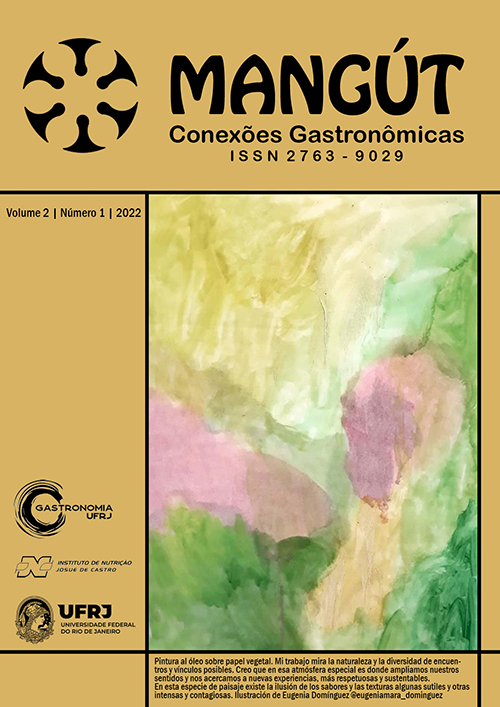The use of reverse spherification techniques and isomalt of contemporary gastronomy applied to the Pelotas confectionery tradition
Keywords:
Gastronomy, pelotenses sweets, molecular gastronomy, isomalt, spherificationAbstract
The sweet tradition of Pelotas has begun in the middle of the XIX. Through the sale of jerked beef produced in the region to the North of the country, the vessels returned with the sugar, which gave origin to the city's sweet-making custom. This custom was mainly introduced by the children of the Portuguese who colonized the surroundings of the current city of Pelotas and who returned after studying on the European continent, bringing the so-called custom of the fine sweets. The basic ingredients used in Portuguese sweets are sugar, almonds and egg yolks. In this study, a dessert was developed based on traditional ingredients using contemporary gastronomy techniques, mixing modern knowledge and historical ingredients. As a result, a dessert inspired by different traditional sweets was obtained, with the main use of inverse spherification and isomalt. This dessert refers to the traditional ingredients viewed in a new way, which demonstrated a possibility of reconciling molecular gastronomy with the traditional cuisine of Pelotas, without losing the city's confectioner characteristic.
Downloads
Published
Issue
Section
License
Autores que publicam nesta revista concordam com os seguintes termos:
- Autores mantém os direitos autorais e concedem à revista o direito de primeira publicação, com o trabalho simultaneamente licenciado sob a Licença Creative Commons Attribution que permite o compartilhamento do trabalho com reconhecimento da autoria e publicação inicial nesta revista.
- Autores têm autorização para assumir contratos adicionais separadamente, para distribuição não-exclusiva da versão do trabalho publicada nesta revista (ex.: publicar em repositório institucional ou como capítulo de livro), com reconhecimento de autoria e publicação inicial nesta revista.
- Autores têm permissão e são estimulados a publicar e distribuir seu trabalho online (ex.: em repositórios institucionais ou na sua página pessoal) a qualquer ponto antes ou durante o processo editorial, já que isso pode gerar alterações produtivas, bem como aumentar o impacto e a citação do trabalho publicado (Veja O Efeito do Acesso Livre).



